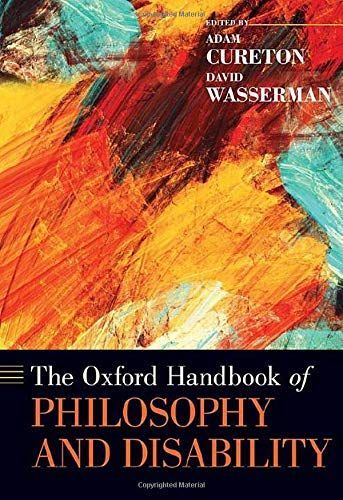
The Oxford Handbook of Philosophy and Disability
Disability raises profound and fundamental issues: questions about human embodiment and well-being; dignity, respect, justice and equality; personal and social identity. It raises pressing questions for educational, health, reproductive, and technology policy, and confronts the scope and direction of the human and civil rights movements. Yet it is only recently that disability has become the subject of the sustained and rigorous philosophical inquiry that it deserves. The Oxford Handbook of Philosophy and Disability is the first comprehensive volume on the subject. The volume's contents range from debates over the definition of disability to the challenges posed by disability for justice and dignity; from the relevance of disability for respect, other interpersonal attitudes, and intimate relationships to its significance for health policy, biotechnology, and human enhancement; from the ways that disability scholarship can enrich moral and political philosophy, to the importance of physical and intellectual disabilities for the philosophy of mind and action. The contributions reflect the variety of areas of expertise, intellectual orientations, and personal backgrounds of their authors. Some are founding philosophers of disability; others are promising new scholars; still others are leading philosophers from other areas writing on disability for the first time. Many have disabilities themselves. This volume boldly explores neglected issues, offers fresh perspectives on familiar ones, and ultimately expands philosophy's boundaries. More than merely presenting an overview of existing work, this Handbook will chart the growth and direction of a vital and burgeoning field for years to come.